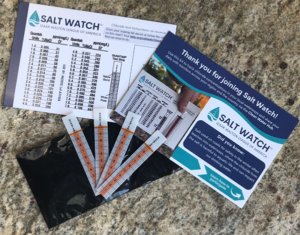The Farm Bill is a broad piece of legislation passed by Congress roughly every five years. It directs food and agriculture in our country, but we should also see it for what it can be: a clean water, public health and climate resiliency bill.
Some of the most serious threats to drinking water, human health and our natural resources are driven by what happens on the land—from spreading millions of tons of chemical fertilizer and manure, to soil erosion that rivals Dust Bowl conditions. Agriculture has, for many years, been the single largest source of runoff polluting our drinking water, streams and lakes. All the while, vital wetlands and grasslands are being drained and plowed at unsustainable rates. Click here to learn more about the problems we face.
The window of opportunity is narrowing to tackle the problems at hand without catastrophic consequences. This adds urgency to increasing investments in conservation.
The first Farm Bill was approved by Congress in 1933, in response to the Dust Bowl and Great Depression. Longstanding agriculture conservation programs are important and have produced positive results. However, in sum, they have not delivered the outcomes Americans deserve. The scale, scope and accelerating nature of the problems demand we rethink how we invest taxpayer dollars; how we evolve programs to provide the outcomes American families expect for that investment; and, with limited resources, how can we maximize the benefits of the investments we make.
The League on Capitol Hill
On Capitol Hill and with lawmakers across the country, the League advocates for Farm Bill policies that will:
- Grow investments in conservation programs that drive practices proven to deliver clean water, improve wildlife habitat and fight climate change.
- Encourage farmers to adopt management practices that reduce erosion and improve soil health across the country.
- Incentivize good stewardship on behalf of farmers and disincentivize practices that are environmentally destructive.
During each cycle in which Congress puts together a new Farm Bill, the League develops a list of ideas and priorities that will increase conservation across the country. Among them, we seek to keep key programs strong—like the ones that provide technical and financial assistance to farmers to implement conservation practices—and introduce new ideas that would move the needle—like directing funding to states and Tribes to advance soil health projects.

 Your kit will include a bottle containing 25 nitrate test strips which you can use to test your water source(s) throughout the year. You’ll also receive postcards explaining how to use your nitrate test strips and how to share your Nitrate Watch results on the Clean Water Hub.
Your kit will include a bottle containing 25 nitrate test strips which you can use to test your water source(s) throughout the year. You’ll also receive postcards explaining how to use your nitrate test strips and how to share your Nitrate Watch results on the Clean Water Hub. Your kit will include four test strips so you can test your waterway throughout the season. You’ll also receive a chart to help you interpret your results and a postcard with instructions for completing a Salt Watch test and reporting your findings.
Your kit will include four test strips so you can test your waterway throughout the season. You’ll also receive a chart to help you interpret your results and a postcard with instructions for completing a Salt Watch test and reporting your findings.